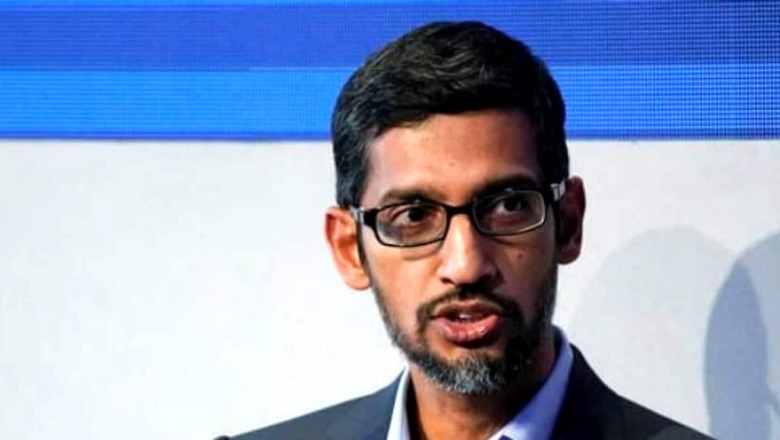
views
For a country whose majority religion is Hinduism, we sure don’t seem to see things in “shades of grey”. Instead, modern India’s perception of the world and the “good” or “bad” that exists is a stark Abrahamic binary. The clearest sign of this is the way we view Indian success stories in India and Indian success stories abroad. Let’s consider people like Meenakshi Ammal, Pushpesh Pant, Jiggs Kalra, Tarla Dalal and Jacob Sahaya Kumar. The first literally wrote the bible of Tambrahm cooking; imagine a woman who published her cookbook in 1951 — India’s own Mrs Beeton. Pushpesh Pant and and Jiggs Kalra started the process of making Indian food haute cuisine, adding value to it from its “low cost” association in the West.
Tarla Dalal literally revolutionised the way Indian households cooked, making the urban population of each state discover the joys of other states and countries with easily available ingredients in India of 1970s and 1980s when things were difficult to come by. Chef Jacob literally discovered and wrote the entire history of South Indian cooking, decisively settling the dispute of where biriyani was invented (in Tamil Nadu, of course).
Yet, guess who won the Padma Bhushan? Madhur Jaffrey. Don’t get me wrong — Madhur is a great choice and she definitely deserves the award, but remember she fundamentally belongs to the West and is celebrated for introducing Indian cuisine to the West, not for changing things or generating employment at home. Yet she’s the most visible face of Indian cooking not because of the impact she had on Indians, but the impact she had on foreigners, whose prism we tend to judge ourselves by.
It’s not that India celebrates Madhur Jaffrey because she changed how we cook; we celebrate Madhur Jaffrey because the West celebrates Madhur Jaffrey, because she changed how and what they cooked. Note how in the previous paragraph, even though writing for an Indian audience, I referred to Meenakshi Ammal as Mrs Beeton of India, though technically, in any self-respecting country, I should’ve been educating Indians about Mrs Beeton being the Meenakshi Ammal of Britain.
Sadly, that’s the prism through which we see Indian industry as well. Giants who changed the nature of the market and provided employment and wealth to millions of Indians are reviled, abused, demeaned, harried by political parties — while the US and British CEOs who have done literally nothing for India save the brown tinge of their skin and brown twang of their names are celebrated and fawned over.
Recently, a food author in a podcast lauded the Instant Pot, questioning why a country like India with highest per capita pressure cooker usage has not managed to combine electricity and pressure to come up with this time-saving innovation. He has a point. But also remember the problem with India has been unreliability of electricity — especially when the bulk of the market is low income and a majority live off stolen electricity ($16 billion worth of electricity stolen in India every year), which is even more unreliable.
Why don’t we look at class-leading pressure cooker innovators like T.T. Jagannathan. He came up with the innovation of the pressure gasket that made pressure cookers safe and popularised them immensely, saving both time and energy, contributing to reduced fuel consumption and sustainability — especially in a country so dependent on high cooking-time foods like lentils for its protein intake.
What’s truly remarkable about Jagannathan and the Prestige brand is that they didn’t patent their invention, making it available to the market (like Volvo did the three-point seat belt), precisely to ensure the size of the market expanded significantly. While it’s impossible to calculate the sheer amount of gas and electricity saved by shorter cooking times, enabled by the market expansion for pressure cookers in India, it would’ve saved India billions of dollars in energy imports. The problem is Instant Pot is a marketing phenomenon in the West — the prism through which we view ourselves — while Jagannathan’s gasket is something that has significantly helped every single Indian, something which we either take for granted or scorn.
This year’s Padma awards list has begun to change some of that but not entirely. Two sore points for me are Sundar Pichai and Satya Nadella. Their import of Indian engineers is merely a market dynamic that has nothing to do with their patriotism. Pichai, in specific, has made certain highly questionable decisions with regard to Google’s algorithms, which actively promote anti-India content. Yet they are placed on the same pedestal as someone of infinitely greater worth to India like Azim Premji.
Let’s just face it shall we? You have to do a lot less to get a Padma as long as you have the white man’s recognition. Simple question: When did JRD Tata get the Bharat Ratna? His contributions to India are beyond compare and yet he got it near the end of his life, while Sundar Pichai and Satya Nadella got it a lot earlier despite not doing even a decimal fraction of what he did.
Ask yourself this: How can a country be truly ‘Atma Nirbhar’ when its existential validation depends not on itself and its people but foreigners? To make ourselves industrially and economically ‘Atma Nirbhar’, we first need to be intellectually, philosophically, socially and societally ‘Atma Nirbhar’. Look within, not without, isn’t that what all the Dharmic faiths teach us?
The writer is a senior fellow at the Institute of Peace and Conflict Studies. The views expressed in this article are those of the author and do not represent the stand of this publication.
Read all the Latest Opinions here


















Comments
0 comment